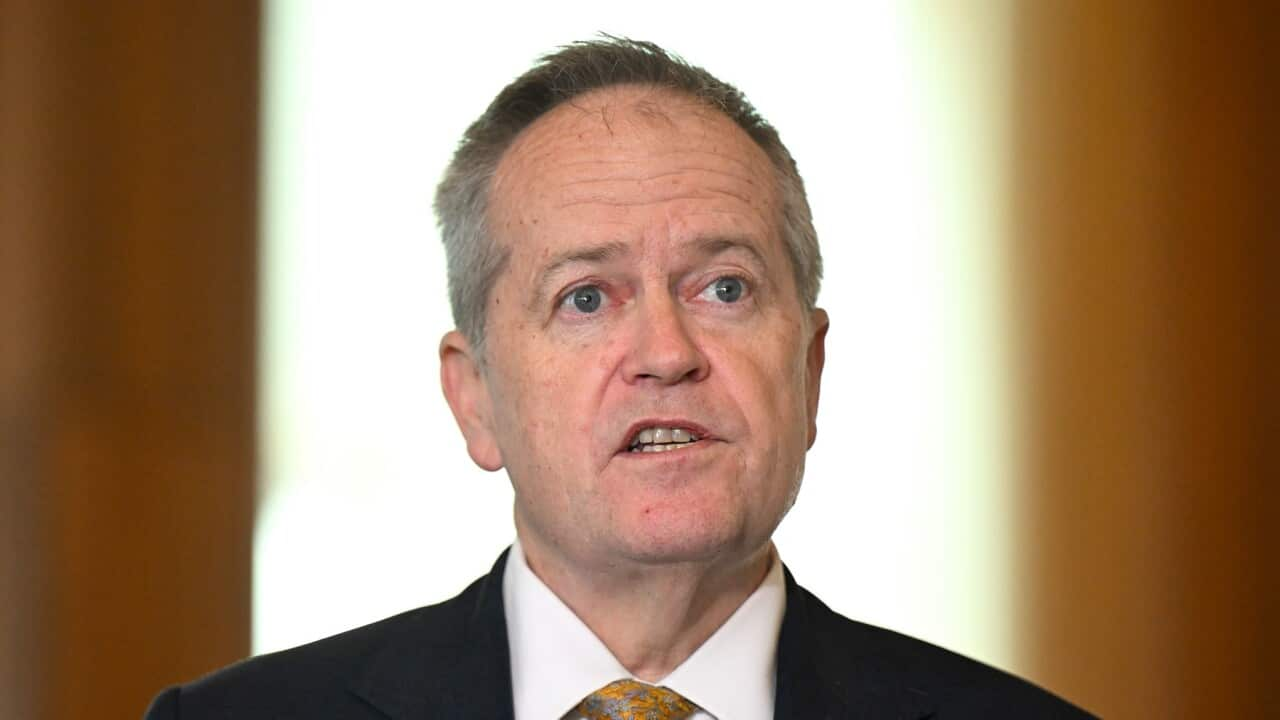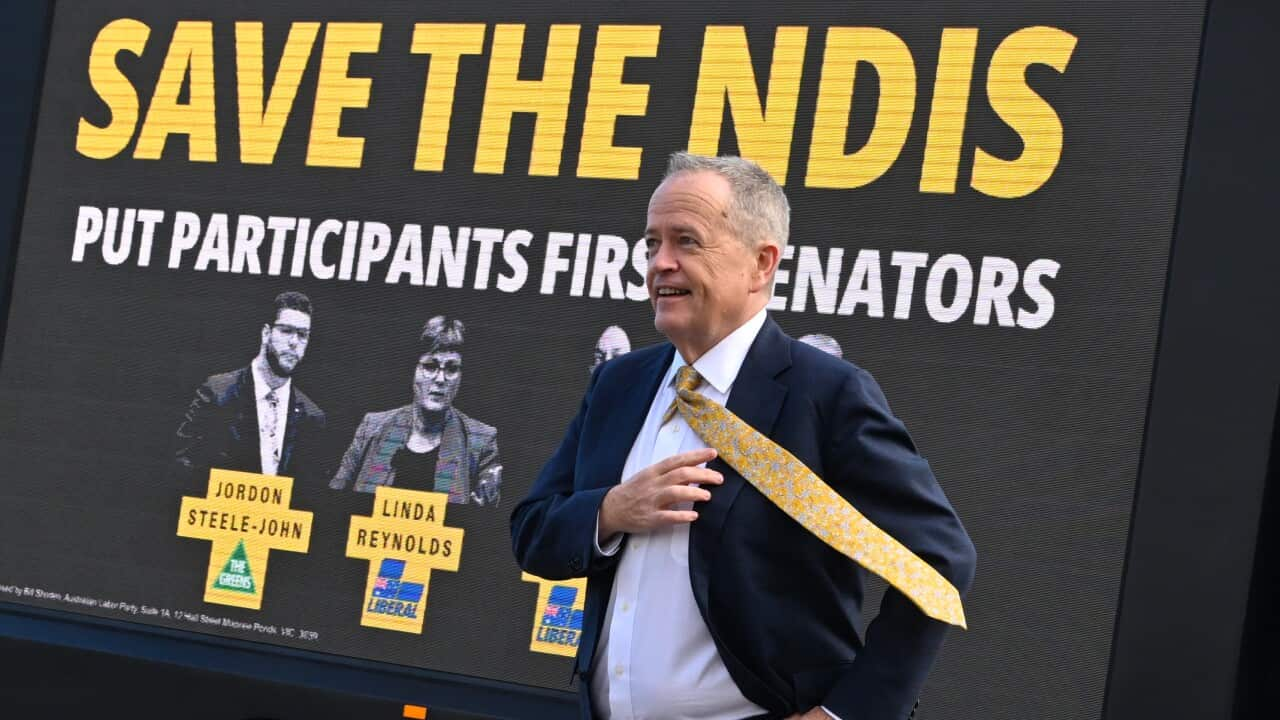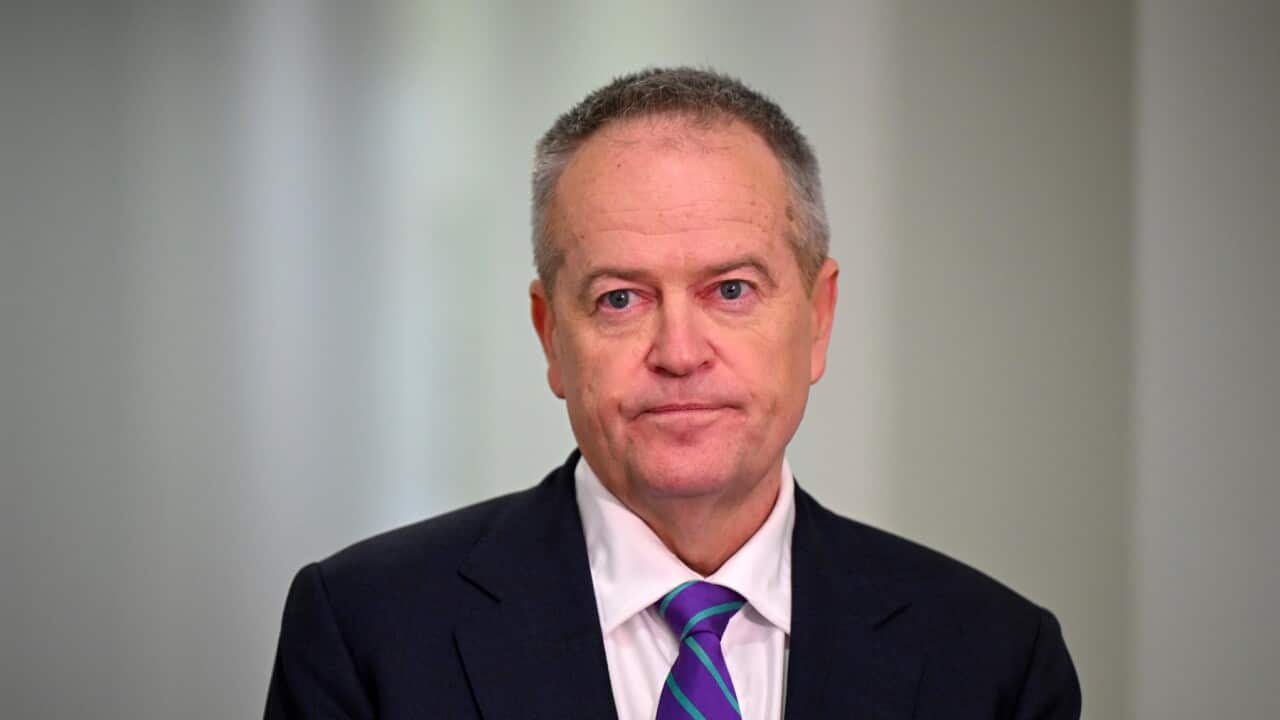TRANSCRIPT
“I'm pleased to say to you that at long last, there will now be a central list of what NDIS participants can spend their money on, and what they can't spend their money on.”
That's Bill Shorten, the Minister for the National Disability Insurance Scheme.
He's talking about new legislation that's come into force on the scheme, as the government looks to rein in the size of the disability budget.
Shorten says the new law - and the list - is going to help both providers and participants - but disability advocates and groups are uneasy.
El Gibbs is the Deputy CEO for the Disability Advocacy Network Australia, or DANA.
“The supports that are going to be allowed are much more rigid and much more narrow and won't meet the needs of lots of people with disability. So we are really worried about it.”
Tahlia-Rose Vannisum is from the First Peoples Disability Network.
She says there are some positives to come from the new legislation.
“The new transitional lists include participation in cultural life for Aboriginal and Torres Strait Islander people. This is something that our community have fought tirelessly for since the start of the scheme, so we were really encouraged to see that. We would have been more excited to see it actually enshrined in the legislation, which is what Recommendation 9.7 of the Disability Royal Commission called for.”
But Tahlia-Rose says overall, the changes will entrench the discrimination that Indigenous people already experience.
“The current system is built on an inherent level of privilege that's embedded in the scheme. It assumes things like shelter, appropriate housing, accommodation, regular interactions with medical institutions, access to phones, the web, a phone with the same number that they have on file.”
El Gibbs says DANA also expects a range of consequences for people currently on NDIS plans.
“One of the things that has been outlawed on the list is rent. And you know, on the face of it, that seems fair enough. I mean I pay rent from the job that I have. Why should anyone else's rent get paid? But for a young person with an intellectual disability for example who wants to move out of home or who have to move out, doesn't have parents - doesn't have family who can support them - the only option is a group home... One of the things that innovation has been able to, especially in WA and other parts is for people to share a house for example with a person without disability, and be able to subsidise their rent slightly for a little bit of support after hours.... and get to do things that lots of other Australians get to do, like live with friends, you know go to the pub, that sort of stuff, but you can't do if you live in an institution. And those sorts of arrangements are going to have to come to an end.”
Tahlia-Rose says the new rules present a further challenge for those with disability in rural and regional Australia, who already struggle to access support.
“Postage obviously. It's going to cost more to get things out if there's no shop there. That seems like a no-brainer. Another one is there's a capped limit on travel times that you can bill and invoice for. I think it's around like seven hours, ten hours a year. If it takes more than nine hours to get to a community - one way - you've just used up your entire travel budget for the year to see one specialist.”
The new list also outlines a range of items that are explicitly banned for the first time.
They include things like gaming therapy, and sexual support services.
Bill Shorten has insisted these have always been illegal and never acceptable in the NDIS - but El Gibbs says that's not true.
She says the Federal Court established a few years ago what was reasonable and necessary.
“A woman with disability who wanted to show that sexual services were reasonable and necessary for her - and that's what the Federal Court found, that she had jumped through an enormous amount of hoops to be able to access the services that she needed for her disability. And the rules around who could access sexual services under the NDIS were pretty strict, and it was a really narrow number of people for whom this was important. So this is now a service that is no longer allowed.”
The new list of approved supports are a temporary measure, in place until the states and territories can agree on the next steps.
Bill Shorten argues the list already makes it clear the direction the states will need to go.
“The other thing which we list in the matters which the NDIS doesn't support are things which should be paid for by other systems. The NDIS is not going to pay for home schooling. We're not going to pay for the stuff which the school system is meant to do. We're not going to pay for prescription drugs which you can get under the PBS [[pharmaceutical benefits scheme]]. We're not going to pay for items you can claim under Medicare.”
Exactly what that division of support will look like is still to be worked out.
Disability worker and advocate River Night says it's complicated, because the states are confronting the unwinding of years of a previous policy to take disability funding away from them.
“The funding went from the states - where the state would administer the funding - and that bucket of funds was taken and given to the federal government. So we ended up with this big bucket of funds that funded everything instead of a federal bucket and a state bucket. Now what we've seen is because those funds were moved from the state, the state didn't have those funds for those local foundational services and the services that they would normally provide. And NDIS became the one-stop shop for anything disability-related.”
For El Gibbs, working out how different state departments and agencies will work together, to support Australians with disability, will be critical.
She says she doesn't want to see anyone falling through the cracks of the system because they don't have time to wait for the lines to be drawn.
“When it comes to the NDIS and disability funding, that plays out right in the very lives and homes of people with disability. So you have things like different governments arguing over who should do home modifications in public housing, for example. Is it the NDIS' responsibility or is say a state government's responsibility? There's also now the NDIS' rule about funding generators and batteries, for example. So if a person with disability relies on electricity to - I don't know stay alive - so for a ventilator for example, the NDIS will no longer fund generators or batteries. There's an expectation that state and territory governments are meant to fund them. But they don't. So what's going to happen to people who can't afford to buy a generator or battery?”
But as those details are finalised, Mr Night says a major concern is an apparent lack of transparency in the process.
He and other advocates say it's not so much a system of co-design - but rather, groups being presented with information and narrow response deadlines that leave very little time to talk with the people they represent, and understand exactly what might be changing.
“The big issue with this is that we received the information around the provider lists with less than two days notice that are being rolled out today... And what that does is it creates a lot of fear within the sector. There's been talk of co-design and consulting with the disability sector in developing this, yet every peak body in Australia - representing the over 4.4 million Australians living with disability - are in the dark.”
Social Services Minister Amanda Rishworth says people with disability ARE being fully included in the planning process.
“We will continue to work with the states and territories - making sure of course, people with disability are at the centre of that work.”
But some groups say communication remains an issue.
They worry about how things will play out when there's a clause in the new legislation that allows debts to be raised against participants who spend their funding on non-approved items.
Tahlia-Rose says communication is already an issue between institutions and First Nations people - which means:
“Less mob than non-Indigenous people around Australia are going to know about the changes and therefore be more likely to make claims or pay for supports that could potentially going to have debts raised against them in the future. We're also concerned that the current limit for the debt raising and grace period is up to $1500. And for mob - and all Australians - living in regional and remote areas that is not a very high limit, because of services being more expensive.”
The Minister has downplayed those concerns.
Bill Shorten also doesn't believe the criticisms about the speed and transparency of the rollout are fair.
He says for most people, nothing will change - and part of his motivation is to stamp out fraud and misuse.
“The NDIS was set up 11 years ago to look after people with profound and severe impairment and give them a personal budget to have more fulfilling lives. I think every Australian supports that concept. But what we have seen is the rise of opportunistic, unethical providers - and many of them are very good by the way, but some are not. And they're selling snake oil. They're selling stuff that frankly doesn't work and shouldn't be paid for. And what this list does is put that beyond doubt.”
River Night says that's a worthy goal.
But he says the more urgent issue is making sure the recommendations of the Disability Royal Commission are implemented as part of the entire NDIS reform process - if rising costs are such a problem.
“Most Australians I don't think appreciate or understand how disability services are funded, how it works. All that kind of thing. It's really hard for everyday Australians to wrap their head around, well why does someone need that funding... The cost on the economy (of abuse and neglect of people with disability) is between $60 to $80 billion a year. And that doesn't include the cost of the NDIS. So the cost of not doing this is twice the annual cost of the NDIS, every single year.”
He also points to the expense of getting expert reports that are routinely ignored, and the cost of not having face to face access to planners anymore.
“I've got several friends that are on $400,000 a year plus NDIS packages for themselves individually - and they haven't seen a planner in three years... And I've got one lady that I know of where she's got an OT assessment recommending FDA housing three years in a row. Each year the NDIA planner has just forgotten to process that application - and then of course have said 'well now that's it's six months old you've got to get another one'. So they've had to go privately spend another $600 to recommend the same thing because the NDIS has forgotten to process that in the review.”
Bill Shorten has consistently talked up the changes, saying he wants to restore trust in the NDIA and the community.
Natalie Wade is the Associate Commissioner of the NDIS Quality and Safeguards Commission.
Earlier this year, she also sought to address those concerns.
“At the outset, I would like to acknowledge the distress and concern that has been expressed by the disability community and sector as they grapple with the reform agenda. And I hope that today's announcement will bring some relief that there is a clear commitment by the government and by the Commission to ensure that the reform agenda, ensuring quality and safe services for people with disability, is centred on human rights.”
Disability groups say they appreciate those sentiments.
But for El Gibbs, there is a fundamental moral argument that must still be confronted, where people with disability are still seen as a burden.
“What is causing those cost increases though, and how we fix it, is the key challenge. And of course some people will look at people with disability - because there's a very long history of looking at us as expensive, not important, a waste of money, you know. There's centuries of history of that.”













